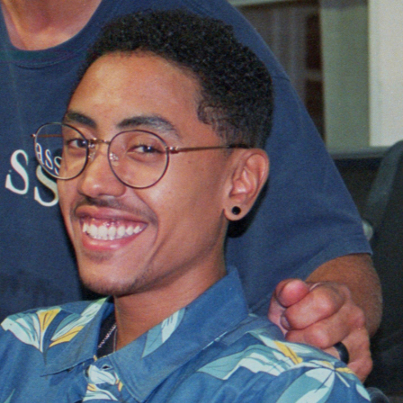Patient care coordinators help patients manage their care and providers work together across teams or even entire organizations. If you’re looking for a healthcare career that can give you the opportunity to help people without earning a medical degree, this could be a great role for you.
In this guide, we’ll cover everything you need to know about patient care coordinators, including their responsibilities, the skills they use every day, and the path you’ll need to take if you want to become one.
What Is a Patient Care Coordinator?
A patient care coordinator, also called a patient navigator or simply care coordinator, is an administrative professional who monitors and manages a patient’s healthcare.
Patients with chronic conditions or other complex health needs often require treatment plans that incorporate multiple providers who may not work in the same organization or be able to communicate easily, so care coordinators are essential to ensuring they’re all working toward the same goal.
Patient Care Coordinator Responsibilities
Serving as a liaison between patients and their providers is a big task, so patient care coordinators are required to take on a lot of diverse responsibilities, including:
- Care coordination: A big part of a patient care coordinator’s day is communicating with providers regarding their patients’ needs, upcoming appointments, and current concerns.
- Treatment plan management: While care coordinators don’t provide healthcare services themselves, they do work with providers to develop treatment plans for patients that address their health holistically.
- Patient education: When they aren’t coordinating with providers, these professionals help patients understand their diagnoses, how to use any medication they’ve been prescribed, and any challenges they can expect to face.
- Advocating for patients with insurers: Care coordinators often communicate with insurers on patients’ behalf, striving to get as much reimbursement as they can for any procedures or equipment the patients need.
Patient Care Coordinator Skills
To fulfill these important responsibilities, patient care coordinators need an arsenal of soft skills, including:
- Communication: One of the most important skills for a patient care coordinator to have is the ability to communicate effectively, promptly, and often, with both providers and patients.
- Empathy: Working with patients with complex health needs, especially those that are newly diagnosed, requires a lot of compassion. You may need to help these patients process their emotions in addition to coordinating their care.
- Organization: You can’t be a patient care coordinator without having a knack for organization. You’ll need to be able to keep various patients’ records straight, maintain contact with many different providers, and handle important tasks without losing sight of any details or deadlines.
- Problem solving: Things won’t always go smoothly for patients or providers, so care coordinators need to be able to find creative solutions without losing patience.
Patient Care Coordinator Job Outlook
According to the U.S. Bureau of Labor Statistics (BLS), which classifies patient care coordinators as healthcare support workers, reports that the average annual wage nationwide is $47,010. According to Glassdoor, patient care coordinators with advanced degrees can earn up to $74,000 per year.
Care coordinators work in hospitals, nursing homes, private practices, and sometimes insurance companies.
Patient Care Coordinator vs. Patient Care Technician
If you’re also considering other healthcare jobs, you might be wondering what makes patient care coordinators distinct from similar roles. For example, patient care technicians have a very similar title to patient care coordinators, but their responsibilities are very different.
Patient care technicians work alongside nurses and doctors to provide hands-on care for patients, while patient care coordinators direct care from a distance, communicating with healthcare providers and coordinating treatment plans.
If you’re interested in becoming a patient care technician, learn more about Stepful’s eight-week Patient Care Technician Certification program.
How to Become a Patient Care Coordinator
Follow these steps to start a career as a patient care coordinator:
1) Earn a bachelor’s degree
While you don’t necessarily need to pursue a bachelor’s degree to work as a care coordinator, you’ll have a much easier time getting hired if you do. Many patient care coordinators choose to study public health or health and human services to prepare for their careers.
2) Gain relevant work experience (Optional)
If you need to save up before or while pursuing your education, you can earn some money and strengthen your career prospects at the same time by seeking out entry-level healthcare roles that will help you acquire transferable skills. Working as a medical receptionist or patient care technician, for example, will demonstrate experience in direct patient interaction on your applications for jobs, schools, or training programs.
3) Complete a training program or earn certification (Optional)
While these programs aren’t necessarily required to start working as a patient care coordinator, you can boost your chances of negotiating for a higher salary by completing a training program or earning a certification, usually in patient advocacy. Other options include becoming a Certified Case Manager, Certified Medical Office Manager, or Certified Medical Manager.
4) Find your first full-time job
Once you’ve completed your education or training, you’ll be ready to start looking for jobs as a patient care coordinator. If you want to, you can strengthen your application even more by getting some experience working with patients first, like by working part-time as a medical receptionist.
Learn More About Patient Care Roles
- What is a Patient Care Technician and How To Become One?
- How Long Does It Take to Become a Patient Care Technician (PCT)?
- What is a Patient Care Assistant & What Do They Do
- How to Become a Patient Care Technician (PCT)
- Patient Care Technician Responsibilities & Duties
- Free & Cheapest PCT Programs Online




.svg)










